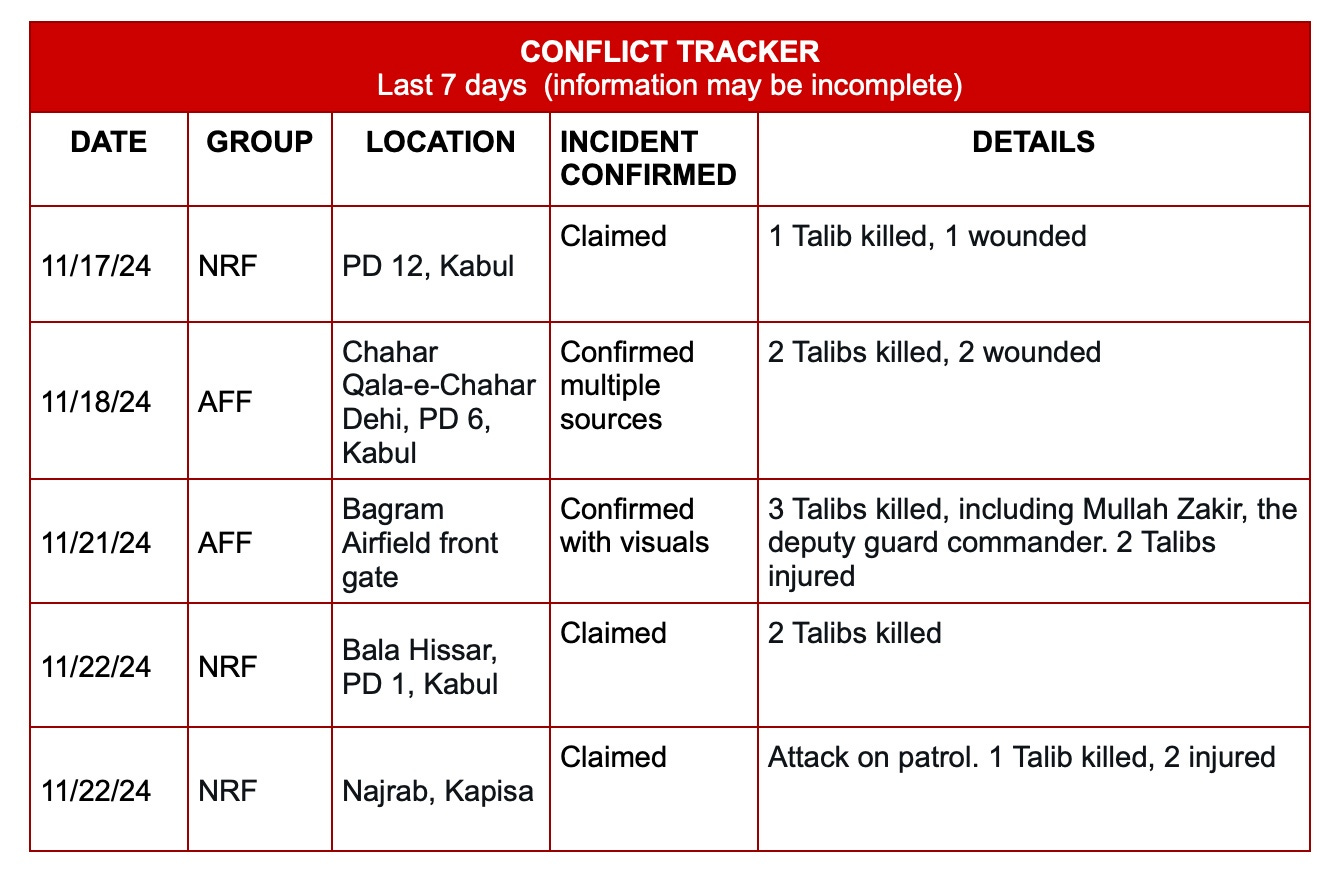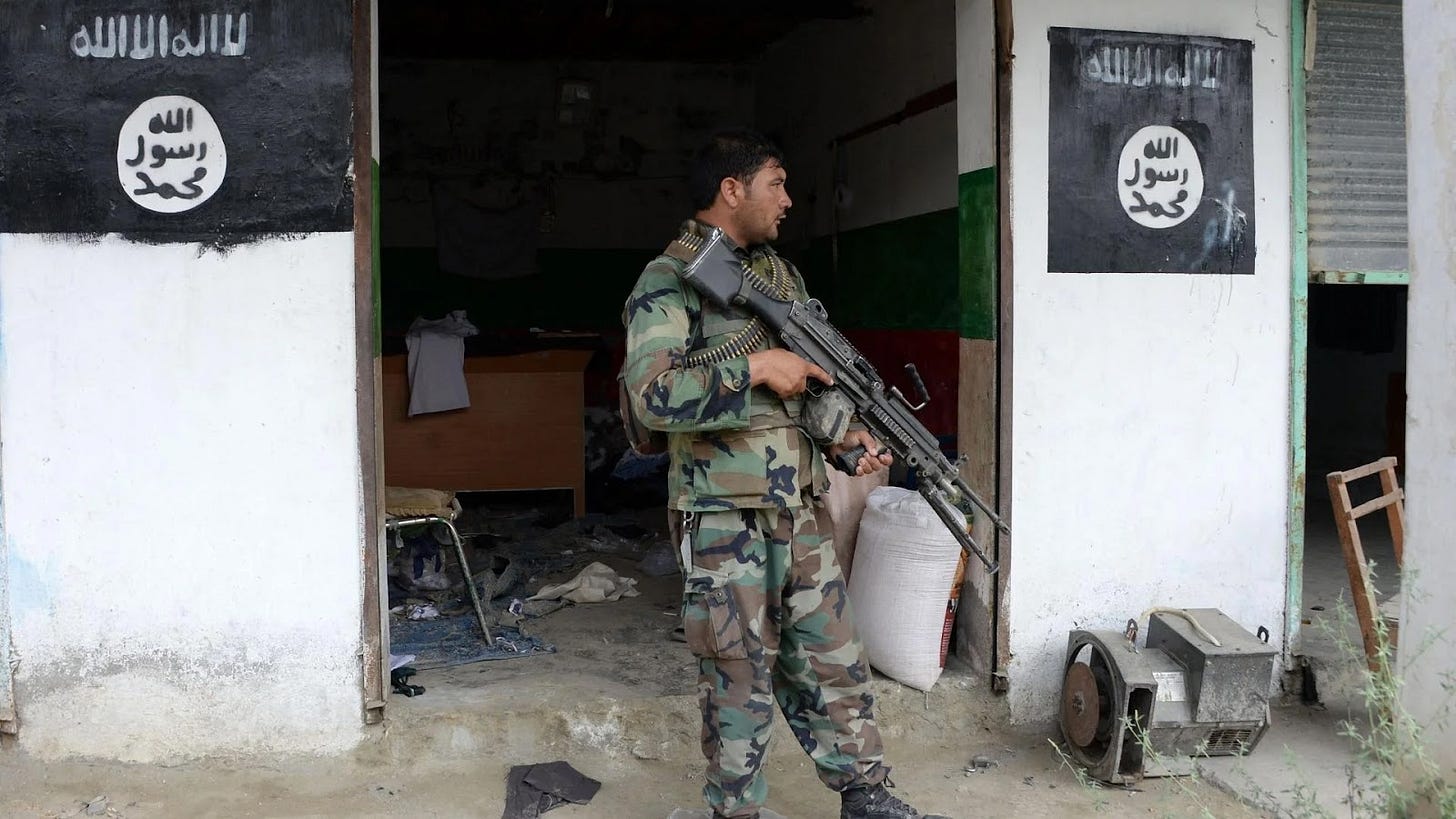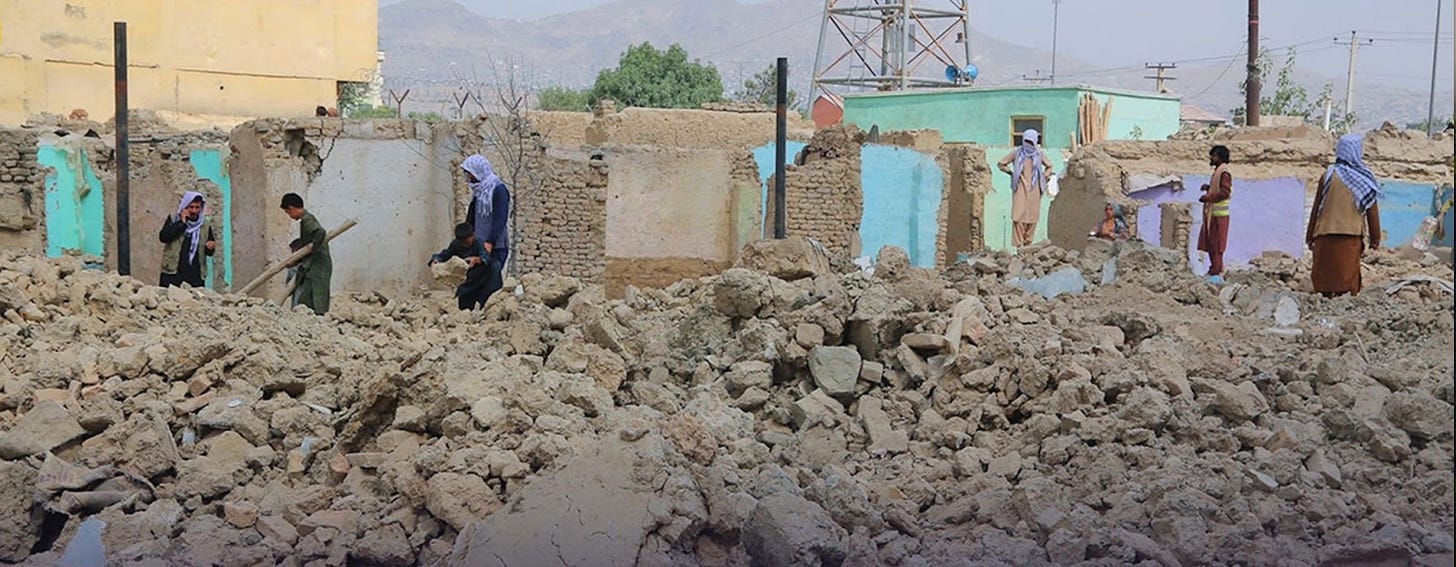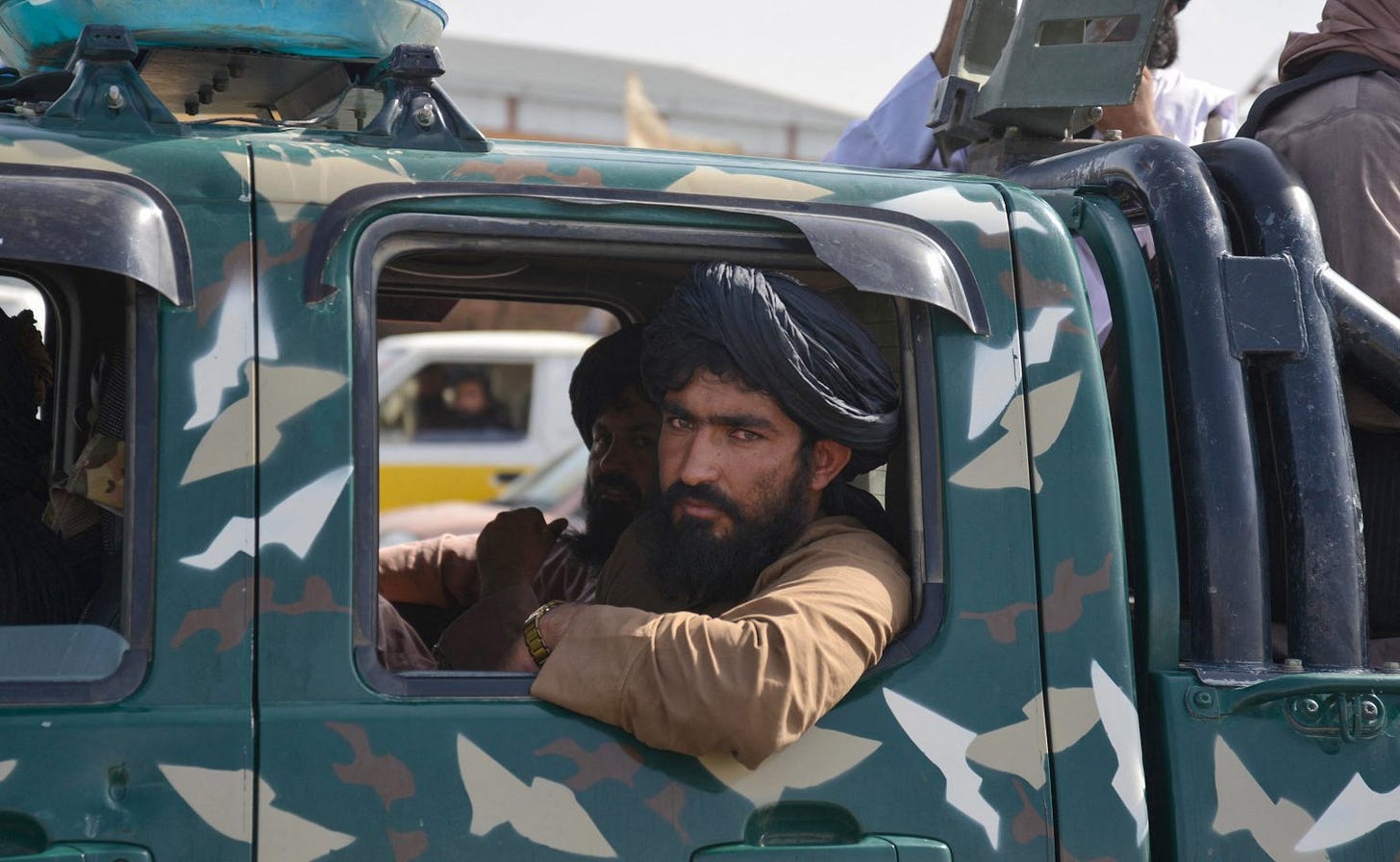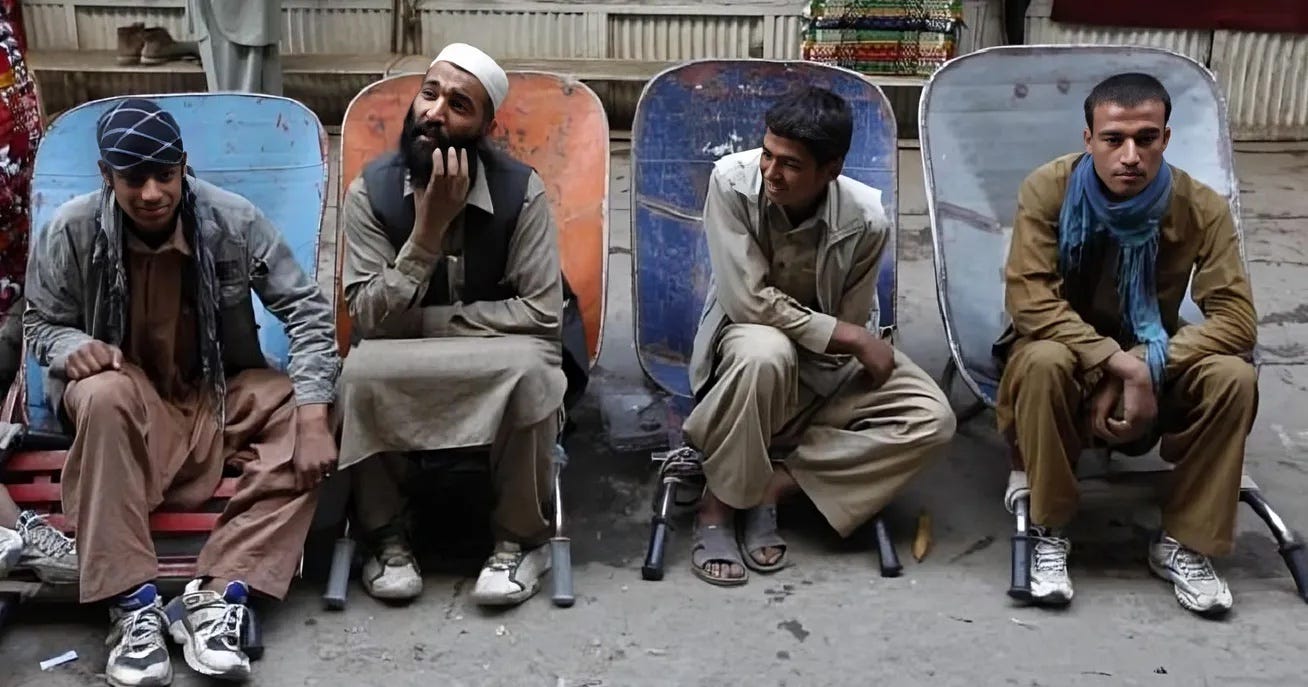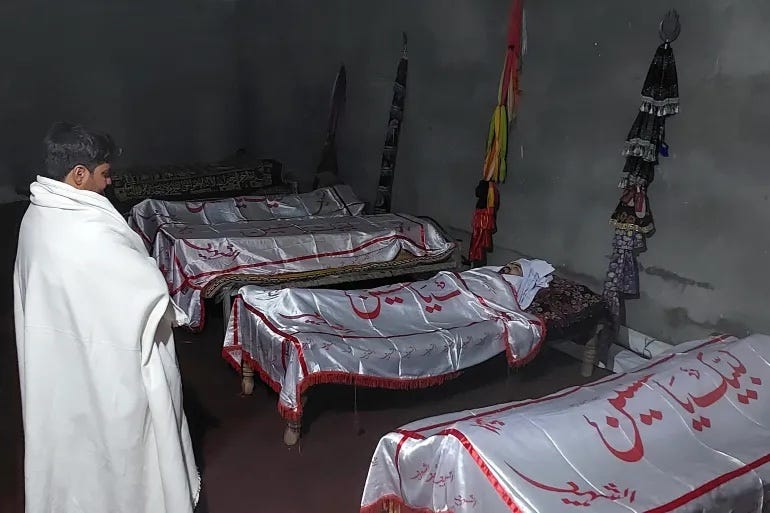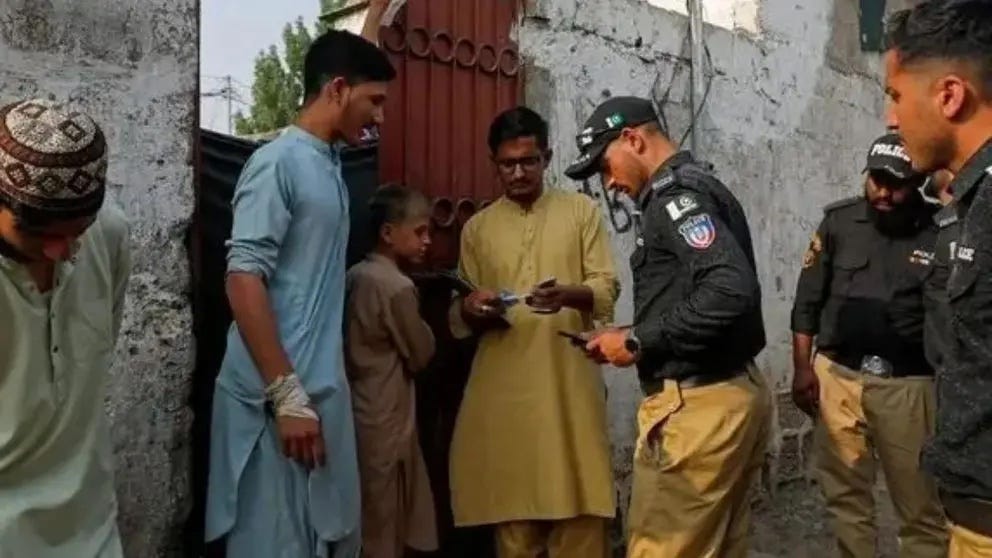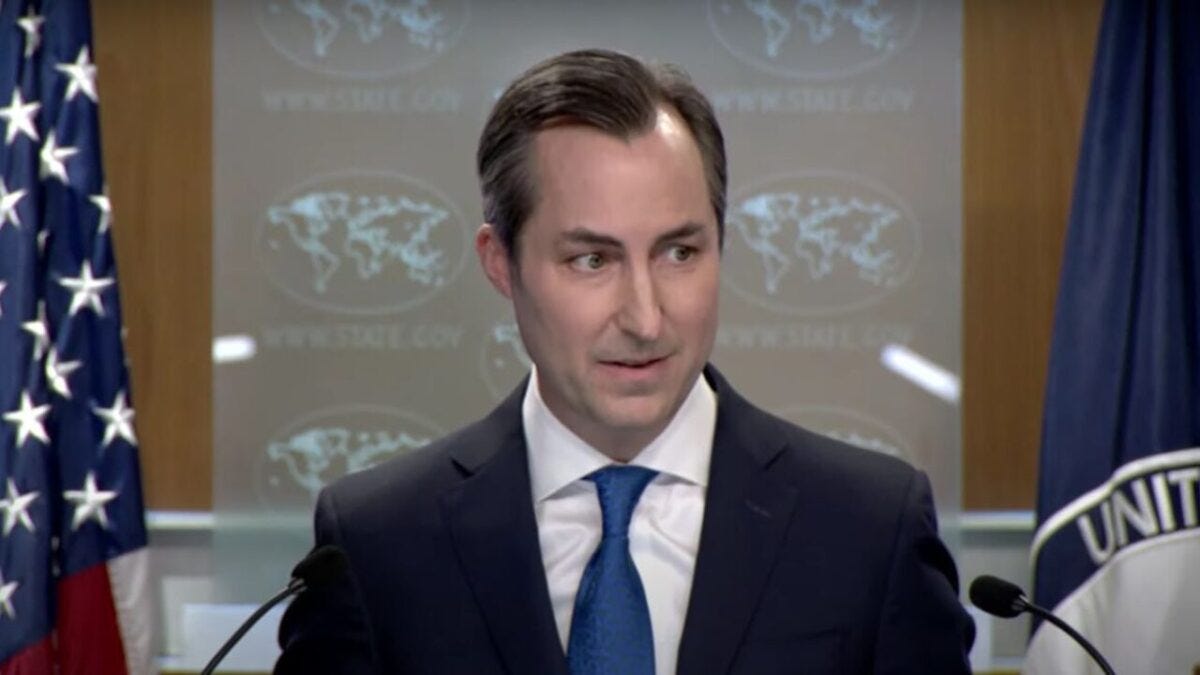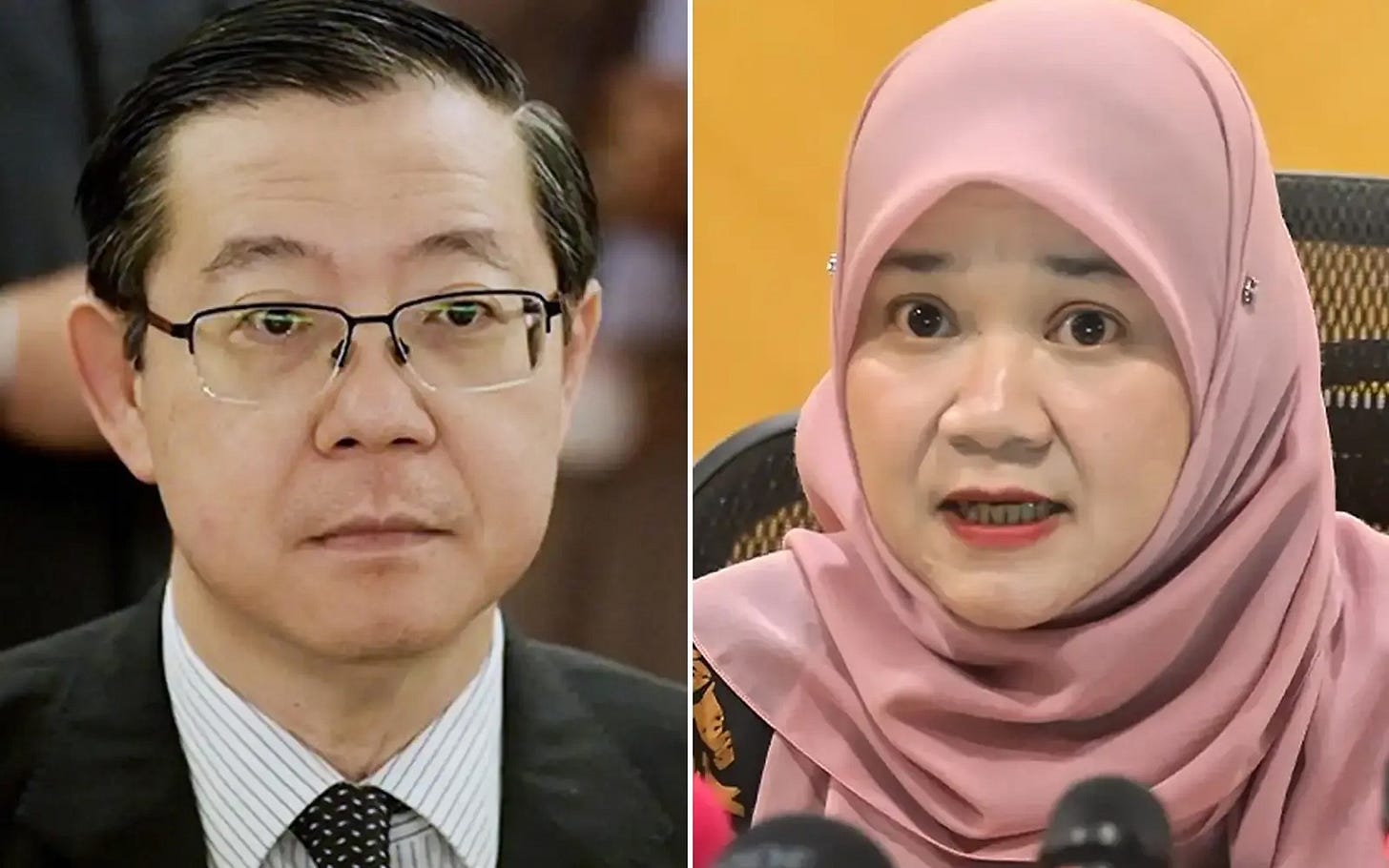Security and Conflict
Attack on Sufi Shrine in Baghlan – On Thursday evening, November 21, a gunman opened fire on Sufi worshippers gathered for a weekly ritual at the Sayed Pacha Agha Sadat shrine in Nahrin district, Baghlan province, killing ten people. Taliban Ministry of Interior spokesperson Abdul Matin Qani stated, “A man opened fire on Sufis taking part in a weekly ritual at a shrine in a remote area of Nahrin district, killing ten people.” Videos show victims lying on prayer mats. The Taliban described the attack as "mysterious" and confirmed the detention of several suspects. The Islamic State Khorasan Province (ISKP) has claimed responsibility, alleging that members of the Taliban were also killed in the attack, though this claim remains unverified.
Cross Border Attack Kills Chinese Worker in Tajikistan – On Monday, a cross-border attack in Tajikistan's Zarbuzi Gorge resulted in the death of one Chinese national and injuries to five others, including four Chinese workers at a gold mine and one local resident. The attack occurred in the Shamsiddin Shohin district near the Afghan border, with armed individuals reportedly crossing from Afghanistan. This underscores persistent security concerns in the region. Tajik authorities have faced multiple border incidents involving smugglers and militants, including an August 2023 clash that killed three members of the Ansarullah group. This marks the first fatal attack involving a Chinese national in the volatile area.
Taliban Commander Killed by Wife – On Monday, in Helmand’s Musa Qala district, Taliban commander Qari Saifullah was killed by his 20-year-old second wife with an axe. Married for only a month, she reportedly entered the marriage through a forced arrangement involving a dowry of 900,000 Afghanis. While the motive remains unclear, the incident underscores the links between forced marriages and domestic violence in Afghanistan.
Explosion in Balkh – On Saturday, a blast destroyed three homes in the Chahar Bolak district of Balkh Province. The explosion was caused by the detonation of 22 rockets stored in a residence. Initially, the Taliban attributed the explosion to a gas cylinder but later clarified the presence of ordnance. No casualties were reported. The incident highlights Afghanistan’s worsening IED contamination, which now affects 65 square kilometers across 26 provinces—a significant increase from 53 square kilometers in 2022—posing escalating risks to civilians.
Human Rights and Civil Liberties
Rawadari Report on Education – A report released this week by Rawadari underscores that Afghanistan remains the only country where women and girls are denied access to secondary and higher education, affecting over 1.4 million students since the Taliban's return to power. The report examines the wide-ranging impacts of these policies, including curriculum changes, restrictions on educators, and broader societal consequences. Data from 26 provinces reveal systematic efforts to reshape education and increasing restrictions on reporting violations. The Taliban’s surveillance and threats have further impeded documentation of human rights abuses. The report calls for urgent international action to restore education access for Afghan women and girls. For detailed findings, access the full report here
Report on Foreign Prisoners in Afghanistan – On Thursday, the Taliban's Prisons Regulatory Authority reported that 150 foreign nationals, including 10 Iranians, are currently held in Afghanistan’s prisons. Meanwhile, 8,000 Afghans are imprisoned in Iran. Talks are underway between the Taliban and Iranian officials to facilitate the transfer of Afghan prisoners. Nearly 12,000 inmates are detained in Taliban-controlled prisons, including three U.S. citizens and a Canadian veteran.
Floggings – On Tuesday, the Taliban flogged two women—one in Baghlan and another in Khost. On Thursday, three more individuals were publicly flogged in Samangan province, continuing a pattern of harsh punishments under Taliban rule.
ANSF Killed –This week, Taliban soldiers allegedly executed Fardin Mujadidi, a former Afghan special forces soldier, after detaining and torturing him in Kapisa’s Nijrab district. His body, found in Chahar Qala village, displayed signs of torture and gunshot wounds. Mujadidi, who had become a taxi driver after the Taliban's takeover, was killed three days ago.
Women-Only Cafes Forced to Close in Herat – The Taliban have forced the closure of at least three women-only cafes in Herat, with warnings issued to others. These cafes, which provided critical spaces for women's economic and social participation, are now facing shutdowns, leaving many financially devastated. Activists warn that such restrictions are part of the Taliban’s broader strategy to erase women from public life, heightening global concerns over human rights in Afghanistan.
Internal Politics
Haqqani Statement on International Relations – Taliban Interior Minister Sirajuddin Haqqani stated during a speech in Khost that Afghanistan prioritizes its own interests in foreign relations, seeking ties that align with Afghan customs and traditions. He highlighted that no country has formally recognized the Taliban administration, underscoring its continued diplomatic isolation.
Acting Minister of Vice And Virtue Statement – The Acting Minister of Vice and Virtue, Mohammad Khalid Hanafi, dismissed concerns that the Taliban would face isolation if it fails to fully implement Sharia and engage with the international community. He described such fears as “cowardly” and rooted in “virtual fear.” Hanafi emphasized that the Taliban’s success, civilization, and power depend on prioritizing God’s will over popular desires. Reports suggest internal disagreements within the Taliban regarding the balance between international engagement and strict adherence to Sharia law.
Corruption in Contracts – In Nangarhar, the Taliban-led Canal Administration faces allegations of corruption, including awarding a fertilizer contract to a Helmand-based company at inflated rates. Sources claim the administration head, Sayed Mohammad Naeem Mohammadi, favors southern companies while sidelining eastern staff. The contracts allegedly bypass procurement laws and lack public announcements, fostering opacity. Taliban officials deny the accusations, but the controversy recalls previous corruption cases, such as the dismissal of Jalalabad municipal staff for similar misconduct.
International Developments
Afghan Consulate in Germany Steps Down – On Monday, Said Lutfullah Sadat, the Afghan Consul General in Bonn, Germany, announced his resignation, refusing to work under the Taliban's authority. His decision follows the Taliban's July directive requiring all Afghan diplomatic missions, including the Bonn consulate and the embassy in Berlin, to report directly to its administration, effectively denying them independent recognition.
Meeting in Leadup to Doha – On Friday, Hassan Kazemi Qomi, Iran's ambassador and special envoy for Afghanistan, met with diplomats from Japan, Uzbekistan, and UNAMA Deputy Special Representative Georgette Gagnon. The discussions focused on regional cooperation, combating narcotics, and developing Afghanistan's private sector. Qomi reaffirmed Iran’s support for constructive initiatives, emphasizing that Afghanistan's stability benefits the region. The meeting aligns with ongoing calls for follow-up discussions on commitments made at the third Doha meeting, underscoring Iran's vested interests in Afghanistan's future.
UN Agencies Work to Release Climate Funds to Afghanistan – UN agencies, including FAO and UNDP, are working to unlock $19 million in frozen climate funds for Afghanistan in 2024. FAO plans to allocate $10 million to natural resource management, while UNDP proposes $8.9 million for drought-affected rural communities. These funds, intended to bypass the Taliban, aim to support vulnerable populations facing severe droughts, floods, and food insecurity. If approved, this would mark Afghanistan's first new climate funding in three years.
Afghan Girl Wins International Children’s Peace Prize – Nila Ebrahimi, a 17-year-old Afghan, has won the International Children's Peace Prize for her leadership in a musical protest movement and inspiring Afghan girls to demand their rights. The award, presented in Amsterdam, celebrates her courage in addressing oppression, including the education ban affecting 2.5 million Afghan girls. KidsRights commended her advocacy as a source of global inspiration. In her acceptance speech, Nila emphasized the importance of amplifying Afghan women’s voices and bringing hope in challenging times. Nobel laureate Tawakkol Karman presented the award.
Russia Not Ready to Recognize the Taliban – Russia’s Deputy Foreign Minister Andrey Rudenko stated in an interview that it is premature to formally recognize the Taliban but affirmed Russia’s ongoing efforts to remove the group from its terrorist list. He stressed the importance of gradual progress through legal processes to foster economic and diplomatic ties. While Russia is engaging with Afghanistan’s rulers on shared interests, formal recognition remains conditional on counterterrorism measures and the establishment of inclusive governance.
Freedom of the Press
Afghan Journalist Center Note on World Television Day – On Thursday, World Television Day, the Afghanistan Journalists Center highlighted the severe restrictions on media under Taliban rule. Over the past year, 12 TV stations have been shut down, and at least 30 journalists have been detained. Directives issued by the Taliban ban women from appearing in dramas, live discussions, or interviews, and prohibit international broadcasts as well as critical reporting. Violations of these orders lead to threats, arrests, or station shutdowns. Additionally, on Thursday, the Taliban extended the ban on broadcasting images of living beings to include Kunar Province.
Regional Developments
Afghan MIgrants Detained in Türkiye – Turkish security forces detained 59 Afghan migrants and one Pakistani in Ağrı province, along with four suspected human traffickers. This follows the detention of 44 Afghans in Çanakkale. A report by Politico reveals severe abuse of Afghan and Syrian refugees in Turkish detention centers. Thousands of Afghans have fled since the Taliban's takeover, often using illegal routes, amid increasing deportations by Türkiye.
Qomi Removed As Iran’s Special Representative to Afghanistan – On Sunday, Iran removed Hassan Kazemi Qomi from his roles as special envoy and ambassador to Afghanistan. Alireza Bigdeli, a diplomat, has now assumed leadership of Iran’s mission in Kabul. The abolition of the special envoy position signals a shift in Iran’s approach to the Taliban, emphasizing consular and commercial ties over political relations.
Report on Chinese Aid to Afghanistan – On Monday, Yue Xiaoyong, China's special envoy for Afghanistan, announced that China has provided $64 million in aid to Taliban-controlled Afghanistan over the past three years, despite not officially recognizing the Taliban government. Beijing has also appointed an ambassador in Kabul and is pursuing economic projects in Afghanistan, including mining, oil, and gas contracts.
Karzai Meets with Iran’s Special Representative – On Wednesday, former Afghan President Hamid Karzai met with Iran’s special representative for Afghanistan, Kazemi Qomi, to call for a regional initiative addressing Afghanistan’s challenges. Karzai urged regional countries, particularly Iran, to focus on Afghanistan's issues. Separately, Qomi met with Taliban officials to discuss Afghan developments and political cooperation, including an agreement to transfer 1,000 Afghan prisoners from Iran to the Taliban. Karzai, a proponent of intra-Afghan dialogue, criticized the Taliban’s closure of girls' schools and rejected the demand for inclusive governance.
Uzbek Ambassador to Afghanistan Presents Credentials – Uzbekistan's new ambassador to Afghanistan, Oybek Usmanov, presented his credentials to Taliban Foreign Minister Amir Khan Muttaqi, pledging to strengthen bilateral relations. Muttaqi emphasized the progress in ties and urged practical steps toward economic collaboration. Despite not officially recognizing the Taliban, Uzbekistan has maintained close relations, with frequent meetings between officials over the past three years.
Miscellaneous
New UN Resilience Program Launched – This week, the UN’s FAO, IOM, and UNDP, with funding from the EU, launched a $16.2 million Afghanistan Community Resilience Programme (ACRP) for 2024–2026. The program aims to support rural communities in Kandahar, Helmand, and Badghis, targeting over 7,000 households. It focuses on boosting agriculture, creating jobs, and improving water resource management. The ACRP emphasizes inclusivity, resilience, and climate adaptation, while integrating disaster preparedness and sustainable livelihoods. This initiative complements ongoing UN efforts to address Afghanistan’s economic and climate challenges.
NEXT WEEK
In Pakistan, nationwide unrest and security concerns have led to strict measures, including searches, hostel evacuations, gas station closures, bus terminal shutdowns, and Section 144 restrictions in Balochistan. While tribal elders have brokered a ceasefire in Kurram, Khyber Pakhtunkhwa, the situation will remain tense and fighting may resume. Movements have been indefinitely restricted in Shakai Valley and Ladha Tehsil, South Waziristan, following targeted attacks and terrorist activities. Mobile and internet services are disrupted across Pakistan today. Protests are expected to continue on Monday, with violence likely.
Avoid protest areas, crowds, and unnecessary travel. Shelter in place where possible and exercise extreme caution during this period of heightened tension. Violence and arrests are likely in major cities over the coming days.
In Iran and Türkiye, crackdowns on Afghan migrants will persist. Afghans in the region should exercise caution when moving about and be aware of the possibility of detention for deportation.
In Afghanistan, crackdowns on media and punishments for moral crimes will continue. Recent checkpoints and searches have seemingly slowed resistance attacks. In the leadup to international discussions on Afghanistan and the change of the U.S. administration, the Taliban will likely double down on their policies to project a strong, unified front in response to rumors of internal rifts.
REGIONAL ROUNDUP
IRAN
Iran Activating New Centrifuges – On Friday, Iran announced the activation of advanced centrifuges for uranium enrichment, following a UN nuclear watchdog resolution that criticized its lack of cooperation. Iran asserts that the move aligns with its peaceful nuclear objectives but warns of an "appropriate response" to what it views as politically motivated pressure from the US and European countries. The International Atomic Energy Agency (IAEA) seeks clarity on Iran’s nuclear activities, including undeclared sites, while expressing concern over Tehran’s near-weapons-grade uranium stockpile. Iran is set to hold nuclear talks with Britain, France, Germany, and the EU on November 29 in Geneva, aiming to revive the 2015 nuclear deal ahead of US President-elect Donald Trump’s inauguration.
ECO Meeting to be Held in Mashhad Next Week – Iran’s Foreign Ministry announced that Mashhad will host the 28th meeting of the Economic Cooperation Organization (ECO) Foreign Ministers next week. The meeting will include officials from ECO member states and regional organizations. As the ECO’s 2024 chair, Iran is emphasizing the organization’s role in fostering regional economic development. While Afghanistan remains a member, its representation has been absent since the Taliban’s rise. Iran has not commented on whether the Taliban will participate, and the group has yet to respond.
Record High Executions in November – A human rights group reported at least 133 executions in Iran during November, including one public execution, 24 death sentences, and seven confirmed penalties. The report highlights severe human rights abuses, including unfair trials, suppression of free speech, arbitrary detentions, violence against women and minorities, and excessive use of force by security forces. The group urges immediate action to address these violations and questions Iran’s commitment to international human rights standards.
PAKISTAN
Attack on Convoy of Shia Pilgrims – On Thursday, an attack on a convoy of Shia pilgrims in Kurram left at least 44 dead and 16 injured, according to officials. Independent sources, however, report 51 fatalities, including a soldier, and 81 injuries, with two soldiers among the wounded. Protests erupted on Friday condemning the sectarian violence, highlighting ongoing tensions and calls for justice in the region. That night, clashes continued, leaving at least 37 dead and 103 injured. Officials reported that entire villages, markets, and government buildings were gutted in retaliation for a previous van attack that killed 47, including women and children. Limited connectivity hindered verification, but reports indicated that six women were taken captive and gunfire continued intermittently from three points. The Thall-Sada-Parachinar Highway remains closed as tensions escalate, with elders urging further violence. On Sunday, a seven-day ceasefire was brokered in Kurram tribal district, Khyber Pakhtunkhwa, following talks between provincial government officials and elders from both Shia and Sunni tribes, with both sides agreeing to return prisoners and the bodies of those killed.
PTI Protests – On Sunday, PTI convoys from various regions converged on Islamabad for a major protest, despite government-imposed roadblocks, internet shutdowns, and warnings under Section 144. The party claimed that police used tear gas and arrested workers at locations such as Taxila, Daud Khel, and the Islamabad Expressway, with visuals of heavy shelling shared online. PTI leaders, including Omar Ayub and Sher Afzal Marwat, reported prolonged shelling targeting their convoys. Protesters attempted to gather at D-Chowk, while authorities deployed extensive security around the Red Zone, citing potential violence and a terrorism alert. Islamabad police confirmed 350 arrests nationwide, while hospitals were placed on high alert. Protests continued into the night.
Ban On Movement Parts of South Waziristan – Pakistan’s police imposed an indefinite movement ban in Shakai Valley and Ladha Tehsil, South Waziristan, on Saturday, November 23, citing an "unstable security situation" due to recent threats, attacks, and terrorist activities. Authorities urged residents to stay home and cooperate during this sensitive period. Traffic and telecommunications in the area have been halted. Police stated that the restrictions aim to ensure public safety and will be lifted once the security situation improves.
Operation Against BLA Launched – Following last week’s deadly suicide bombing at a Quetta train station, which killed 26 and injured 62, and was claimed by the BLA, Pakistan approved a military operation targeting the group in Balochistan on Wednesday. The BLA, known for escalating attacks, including those targeting Chinese workers in Belt and Road projects, has intensified violence alongside the TTP. Critics warn of rising tensions, but Pakistan deems the operation crucial for national stability.
Clash Near Afghan Border – On Wednesday night, Pakistani security forces intercepted militants attempting to infiltrate from Afghanistan in South Waziristan's Zarmilan area. In the ensuing clash, at least four militants were killed, and their bodies were recovered. Officials believe additional casualties occurred among the 30-member group, with bodies being dragged back into Afghanistan, according to a local security source.
ISKP Claims attack – On Thursday, ISKP claimed responsibility for a November 17 explosion outside a mosque in South Waziristan that targeted JUI-F leader Mawlana Shahzada Haqqani. The blast killed Mufti Ijaz Wazir and injured six others, including Haqqani.
SPOTLIGHT ANALYSIS
IS Khurasan’s Multipolar War: Propaganda and Operations Against the Great Powers
Lucas Webber and Peter Smith
With the re-emergence of a multipolar world order and the intensification of great power competition, Western countries have largely deprioritized the global war on terrorism with the hope that jihadist threats would fade away following the August 2021 withdrawal from Afghanistan. As Russia has reasserted itself and China rises as a major player on the global economic and military stage, the heightening tensions between the United States and these competitors are becoming a focus for the Islamic State (IS). Though many deemed the organization “defeated” after the 2019 collapse of the last vestiges of the territorial “caliphate” in Syria, IS is again reinvigorated and projecting power beyond past theaters of conflict as a comparatively more globally interconnected and complex force in its external operations. It is also guiding and inspiring attacks against Western and Eastern powers alike.1 In this way, it can also be said that the Islamic State itself is becoming more decentralized, with recent attacks involving international operatives from Syria, Iraq, Somalia, Tajikistan, Pakistan, and Afghanistan.
The Afghanistan- and Pakistan-based Islamic State Khurasan Province (ISKP) has risen as the most active IS branch carrying out current external operations and is unrivaled in the international scope of its online propaganda and multilingual production. ISKP began the year by conducting dual suicide bombings in Kerman, Iran on January 3, 2024, causing close to 400 casualties, and a January 28 shooting at a Roman Catholic Church in Istanbul, Turkey, that left one man dead and another injured. Relentless in its pursuit of high-profile and public targets, multiple ISKP-linked plots have been identified and prevented in Europe in recent months.
AFGHAN NEWS
Revealed: the truth behind the Taliban’s brutal Kabul ‘regeneration’ programme
Mark Townsend, Jessica Purkiss and Fahim Abed
When the Taliban began a sweeping redevelopment drive in Kabul soon after returning to power three years ago, they claimed there was a need to modernise Afghanistan’s historic capital. A new investigation, however, reveals that the Taliban’s regeneration programme has left thousands of people homeless and had a brutal impact on the most vulnerable communities, with claims of properties being demolished with children still inside.
Using satellite imagery, social media footage and testimony from Afghan residents, the findings offer a first comprehensive insight into the Taliban’s ambitious redevelopment of Kabul – but also its true cost.
Taliban’s Retaliation: 328 Arrested in Two Months
Amin Khawa
The Taliban, despite claiming to have granted a general amnesty, have arrested 328 individuals across Afghanistan on various charges in less than two months. These arrests have occurred both individually and in groups. Among those detained, more than 50 people were arrested for protesting against house-to-house searches. Many detainees remain in unknown conditions. The list includes 12 former military personnel, 100 money exchangers, 40 residents of a village in Nimruz Province, two journalists, three civil activists, a former member of parliament, a female hairdresser, two individuals for missing Friday prayers, five people for playing music, three for photography, and three clerics. A Canadian veteran has also been detained in Kabul.
This report, based on data published by Hasht-e Subh Daily, highlights politically motivated arrests, but the actual number is likely higher due to restrictions on freedom of expression. It excludes individuals arrested on charges like theft or other crimes.
The Afghanistan Freedom Front Steps into the Spotlight
Will Selber
General Yasin Zia’s anti-Taliban resistance group is expanding its operational reach and conducting more lethal attacks.
As the world focuses on Ukraine, Israel, and Chinese revanchism, the war against the Taliban is heating up. Resistance groups still do not pose an existential threat to the Taliban’s iron grip over Afghanistan but have increased the rate and lethality of attacks during the Taliban’s third year in power. While most of the press focuses on Ahmad Massoud’s National Resistance Front (NRF), General Yasin Zia’s Afghan Freedom Front (AFF) is taking on a more prominent role in the anti-Taliban resistance.
Rising Suicide Rate Among Women Lay Bare the Impact of Taliban’s Oppression
Masima Iltaf
Razma was only 22 years old, an engineering student who dreamed of building a brighter future. Her goal was to graduate, secure a job, and support her aging father, who had worked tirelessly to fund her education. But those aspirations were cruelly crushed when the Taliban banned women from universities. Overnight, her path to independence and success was erased.
The despair was overwhelming. Razma wept daily, her once bright future now replaced with an abyss of hopelessness. Her family’s financial struggles meant professional help was out of reach. One fateful day, after seeing pictures of her former classmates attending classes she was no longer allowed to join, Razma retreated to her room in tears. Hours later, her family discovered her lifeless body. She had ingested rat poison.
REGIONAL NEWS
Between Survival and Deportation: The Stories of Afghan Workers in Iran
Javid Motevali
"Where are Taha and Sohrab Today?"
The question echoes through Café Alef on Keshavarz Boulevard in Tehran, where customers miss the familiar sight of two Afghan teenagers whose resemblance to Korean pop stars had become part of the café’s charm.
The café owner’s response is brief and cold, "They’re gone."
Seeing the customers’ confused faces, one waitstaff explains, "Plainclothes officers came in pretending to be customers.
They arrested Sohrab and Taha and took them away. They didn’t even let them call anyone to bring their documents. I think they’ve already been deported.”
The café owner adds, "Our hands are tied. If we protested, they’d hit us with heavy fines. They’ve shut us down several times already for hijab violations. We’re barely surviving as it is."
At least 42 killed in sectarian violence in Pakistan’s Khyber Pakhtunkhwa
al Jazeera
Gunmen have opened fire on convoys of Shia pilgrims in northwestern Pakistan, killing at least 42 people, according to authorities in the restive province of Khyber Pakhtunkhwa.
Women and children were among the fatalities in the attacks in the Kurram tribal district on Thursday, police said on Friday.
Pakistan urges Afghanistan to take action against terror groups
Dunya News
Pakistan on Thursday urged Afghanistan to take action against terror groups operating from its soil and the world to take notice of Indian atrocities on Kashmiri children as the world is marking Children’s Day.
Foreign Office Spokesperson Mumtaz Zahra Baloch said during weekly press briefing that Islamabad has on several occasions shared concrete evidence regarding the terror groups in Afghanistan.
She expressed the hope that the Afghan authorities would consider terrorism as a serious threat not just to the region but to their own security and fulfill their obligations under various international agreements including Doha agreement.
INTERNATIONAL NEWS RELATING TO AFGHANISTAN
Pakistan Calls For Conference On Resettlement Of Afghan Refugees In Western Countries
Afghanistan International
Mohammad Abbas Khan, Pakistan's chief commissioner for refugees, said on Tuesday that an international conference should be held to increase the acceptance of Afghan refugees living in Pakistan by Western countries.
Khan said that Western countries should expedite the process of accepting Afghan applicants waiting in Pakistan.
US defends human rights policy on Afghanistan amid criticism
Milad Sayar
Matthew Miller, the spokesperson for the U.S. Department of State, asserted Thursday that human rights have been central to the Biden administration’s foreign policy since its inception, responding to concerns that the U.S. withdrawal from Afghanistan has contributed to human rights violations in the country.
“Human rights have been at the forefront of our policy since day one of this administration, and we’ll continue to prioritize them,” Miller said during a press briefing. He declined to comment directly on whether the administration had lost ground due to its human rights policies.
The remarks follow criticism from human rights advocates who argue that the withdrawal of U.S. troops from Afghanistan in 2021 created a vacuum that has led to widespread rights abuses, particularly under Taliban rule.
Why did education ministry host Taliban-led delegation, asks Guan Eng
Mohamad Fadli
Bagan MP Lim Guan Eng has questioned the education ministry’s decision to host officials from the Afghanistan government earlier this month.
He said this was of great concern considering the Taliban-led government’s controversial policies on women’s education.
Lim, who is also DAP chairman, said Afghanistan’s ban on women attending secondary schools and universities has drawn widespread international condemnation, including from the United Nations which described the restrictions as “gender apartheid”.


